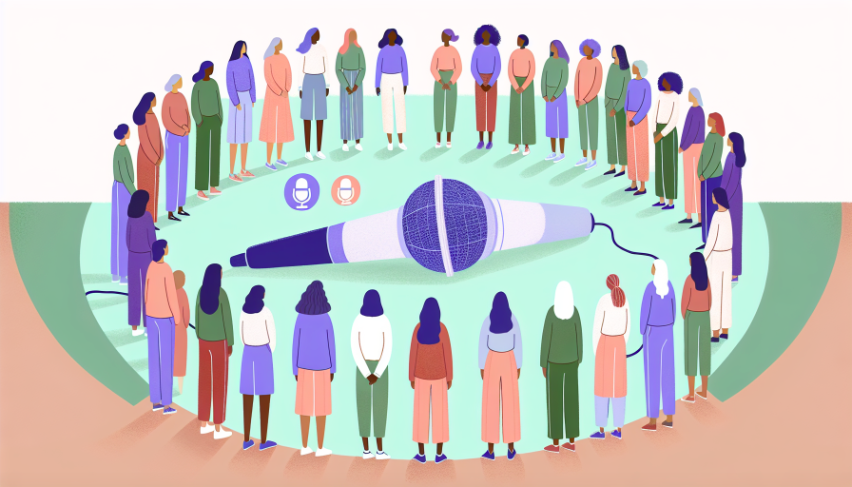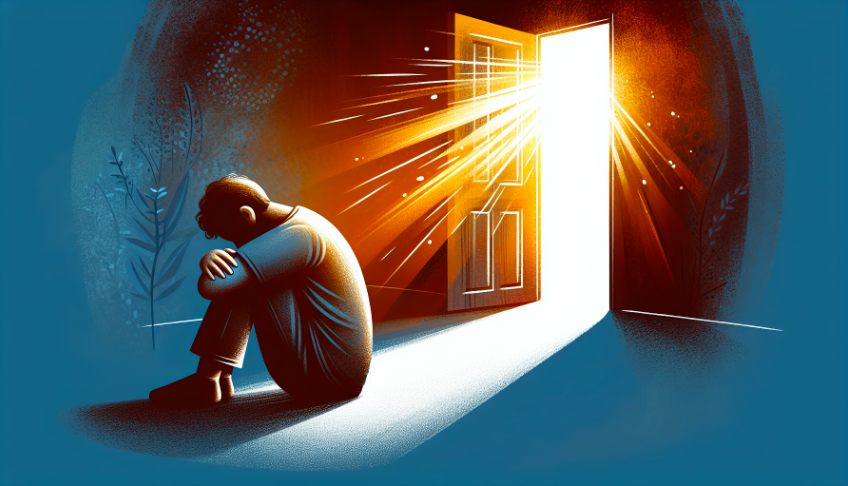Understanding Enmeshment
Enmeshment is a relationship style in which an individual becomes completely intertwined with another person, typically a parent or a partner, to the point of losing their own identity. It is a covert style that involves copying the mechanisms, mannerisms, and identity of the other person in an attempt to gain their love, recognition, and validation.
Enmeshment can provide short-term benefits by receiving love and validation, but in the long run, it leads to feelings of emptiness, depression, and resentment. This relationship style can occur within a one-on-one relationship, a family dynamic, and even collectively on a larger scale.
Table of Contents
This blog is generated by AI based on our video about this topic. You can watch our video below. Prefer to read on? Just scroll down below the video.
The Origins of Enmeshment
Enmeshment often stems from toxic family environments, where love is present but in subtle demanding ways. In these environments, individuals are implicitly asked to abandon their authentic selves in order to maintain the love and approval of their parents or caregivers.
By becoming a replica of their parent, they hope to make their parent feel good and avoid any form of disconnection. Because disconnection is a real threat to a child’s survival, enmeshment is an unconscious coping mechanism developed in childhood to ensure immediate survival.
The Impact of Enmeshment
Enmeshment creates a deep sense of loneliness, as individuals are never truly loved for who they are, but rather for the identity they have copied. It leads to a suppression of authentic needs, desires, emotions, boundaries, and opinions, as individuals prioritize the needs of others over their own. This pattern persists into adulthood, making it difficult to express individuality and have fulfilling relationships.
When someone uses enmeshment as a relationship style to ensure connection and safety, disconnection can often trigger feelings of guilt, fear, or shame. When triggered, the ‘enmesher’ will often make itself small, suppress its authenticity, and please the other person. But this suppression of authenticity and the constant need to please others, result in a profound sense of emptiness, loneliness, and depression.
Download Our Free Starter Pack
& Start Your Journey of Self-discovery, Healing, Transformation & Empowerment!
Healing from Enmeshment
Recognizing and understanding enmeshment is the first step towards healing. It is essential to explore the relationship dynamics with our parents and caregivers and how their expectations shaped our enmeshment patterns. Emotional and somatic healing work can help us access vulnerable emotions and wounds related to disconnection, rejection, and abandonment. By feeling these emotions and soothing ourselves, we can begin to create safety in expressing our individuality and needs within relationships.
Increasing Emotional Tolerance
Increasing our level of emotional tolerance is a crucial aspect of healing from enmeshment. It involves learning to recognize our triggers and to sit with the fear and anxiety that arises when faced with disconnection. Slowly over time, we can start expressing our authentic selves and setting boundaries in a safe and supportive environment. This process requires practice, but it allows us to create new relationship mechanisms that honor our authenticity.
HEALING THE MOTHER WOUND
Give the wounded inner child inside of you the mother love that it never received: presence, softness, acceptance, safety, warmth, tranquility, patience, time and forgiveness. Shop all our somatic and emotional healing tools for the Mother Wound in our webshop.
Shop now from €8,99!
Conclusion
Enmeshment is a relationship style that can hinder our ability to express our true selves and have fulfilling relationships. By recognizing and understanding enmeshment, we can embark on a healing journey that involves emotional and somatic healing work, increasing our emotional tolerance, and learning to express our authentic selves in relationships. It is through this process that we can create new patterns and connection mechanisms that lead to genuine love, fulfillment, and personal growth.
HEART JOURNEY
The Ultimate Platform for Self-discovery, Healing,
Transformation & Empowerment
Become a member & gain access to all our exclusive tools for €49,95 per year only!
Need Help?
Away from traditional (talk) therapy and coaching we have created new tools for self-discovery, healing, transformation and growth. Our tools follow a holistic approach where we combine somatic and emotional healing practices with psychological theory & guidance.
If you resonated with the insights shared in this blog post and are seeking guidance on your healing journey, here are 3 ways we can help you:
1. Shop In Our Webshop
In our webshop you can find all our tools sorted by theme, visit our shop here.
2. Become A Member
Become a member of our online platform & community for Self-discovery, Healing, Transformation & Empowerment: Heart Journey.
Gain instant access to all our Meditations, Somatic Exercises, Parts Work Exercises, Videos, Visualizations and much more for just €7,95 per month or €49,95 per year!
Start your 5 day free trial here.
3. 1-on-1 Guidance
Feel in need of personal guidance? We offer 1-on-1 guidance that transcends classic talk therapy & coaching, speaks directly to the emotions and trauma stored and suppressed in the body, and gets to the root of mental, emotional & physical suffering. Just click here to book a free intake.
Related Blogs

Overcoming the Fear of Speaking Up
Your fear of speaking up, setting boundaries, and expressing your truth is not just a surface-level issue - it's a deep-rooted collective (and intergenerational) trauma that holds you back from achieving your dreams and living your most authentic life. When you learn...

Fear of Abandonment
Have you ever felt the fear of abandonment or rejection? This fear is incredibly powerful and can have a significant impact on our relationships and personal growth. It holds us back from expressing ourselves authentically and achieving our dreams. In this blog, we...

Complex Trauma: What is it & How to Deal With it?
In this blog, we will explore the concept of complex trauma and how it affects our society. Many people associate trauma with a single, significant event, but there is another type of trauma that can occur over a prolonged period of time – complex (or relational)...

Depression: A New Perspective
If you are someone who sometimes or often feels depressive or has a depression, then this blog is for you. In this blog, we will explore a different perspective on depression and how it can be seen as a coping mechanism rather than a disorder or disease. By...

The Wound Of Unworthiness: Why You Don’t Love Yourself
Living in our current society often pushes individuals into a survival mode, where they feel the need to suppress their true selves in order to fit in and adapt. This constant pressure to survive and meet societal expectations can lead to a lack of emotional...



